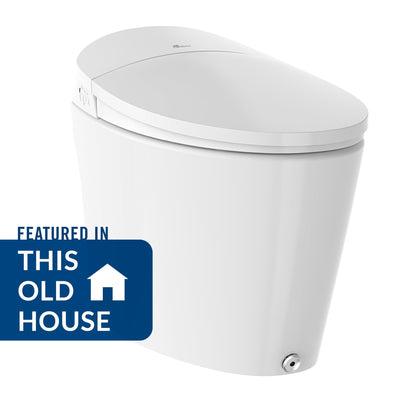Exercise and Digestive Health

Why Exercise Is Important for Digestive Health
You know the benefits of regular exercise. Healthy weight, preventing common cardiovascular diseases, etc. But exercise is also one of the best investments you can make in your digestive health.
“Run” through this article to learn how physical activity improves gut health and can even improve your immune system!
How Does Exercise Help Digestion?
The digestive system impacts every bodily function by processing nutrients, removing waste, and playing a vital role in your body's ability to fight off disease. Regular exercise supports digestive health in the short and long terms, especially for individuals with digestive disorders in a few ways.
- Improves digestive issues – When you're on the move, blood flow throughout the body increases. The improved circulation in the gut that a workout can provide increases your stomach and intestine's ability to function; breaking down food more efficiently and moving (toxic) waste out of the body faster. Studies show that regular exercise can ease or relieve symptoms associated with gastrointestinal problems caused by irritable bowel syndrome.
- Fights constipation – Along with a high-fiber diet and adequate hydration, the increased blood flow a workout provides helps prevent constipation. At the same time, sedentary lifestyles are linked to slow digestion and getting "backed up" more frequently.
- Improves immunity – 70% of your immune system's disease-fighting ability is centered in your gut. Trillions of microbes occupy the digestive tract, aiding in digestion and impacting our ability to fend off foodborne diseases, viruses, and more.
The 3 Best Exercises for Digestion
The CDC recommends 150 minutes of moderate-intensity exercise per week, plus strength exercise at least two days per week. Shoot for 30 minutes of cardiovascular activity per day, such as running, cycling, or walking with friends.
You can prioritize digestive healthy by working in these exercises for digestion as often as they fit your routine:
- Yoga – Yoga provides physical and mental benefits. Regular yoga sessions can reduce stress, improve mobility, and positively impact digestion, including for patients with Crohn's disease. Start with gentle yoga poses and ease into your practice to avoid injury.
- Hiking – Walking and hiking ease symptoms of inflammatory bowel disease (IBD), irritable bowel syndrome (IBS), Crohn's disease, and more. It's an accessible way to get back into exercise without overdoing it. Start with short, brisk walks in your neighborhood and focus on holding a pace that gets your heart rate elevated.
- Abdominal exercises – Working your core strengthens your abs and back muscles. These movements can also help move stool through your system and relieve trapped gas and bloating. Start slow and build up to performing a 10-15 minute ab routine two or three days per week.
Related: How Often Should You Poop?
Timing Is Everything. Well, It’s at Least Important!
You can get the most gut health out of your workout by being optimally fueled but not full. Depending on the type of food, the intensity of the activity, and your own digestive capacity, timing your eating before exercise can also be a personal preference process. It takes many athletes months or even years to fine tune their fueling strategy.
Should You Eat Before or After Exercise?
You'll want to be properly fueled to get the most out of your exercise. Eating after a workout also provides some benefits.
Not sure how long to wait to exercise after eating? Most experts recommend eating a meal approximately three hours before a workout. If it's been longer than three hours since you ate, you might opt for a snack 60 minutes before exercise, especially if you just can't stomach breakfast before an early morning run, walk, or bike ride. When eating before exercise, always choose simple, easy-to-digest foods like bread and oats and avoid high-fiber foods.
Eating after exercise is a great way to replenish vitamins, minerals, and nutrients. Choose simple carbs and proteins to replenish glucose and repair muscle damage.
Note that your pre-and-post workout nutritional needs change based on the duration and intensity of your workout. You won't need to fuel for a walk around the neighborhood, but you will need a quick bite to recover from a 60-minute HIIT class.
It All Starts with Digestive Health
Healthy digestion is a key component of maintaining total health and wellness. We’re committing to supporting your investment in your well-being. Explore our line of bidet seats and bidet attachments and level up your commitment to wellness. Not sure which model is right for you? Take our Bidet Quiz to find the perfect match!




